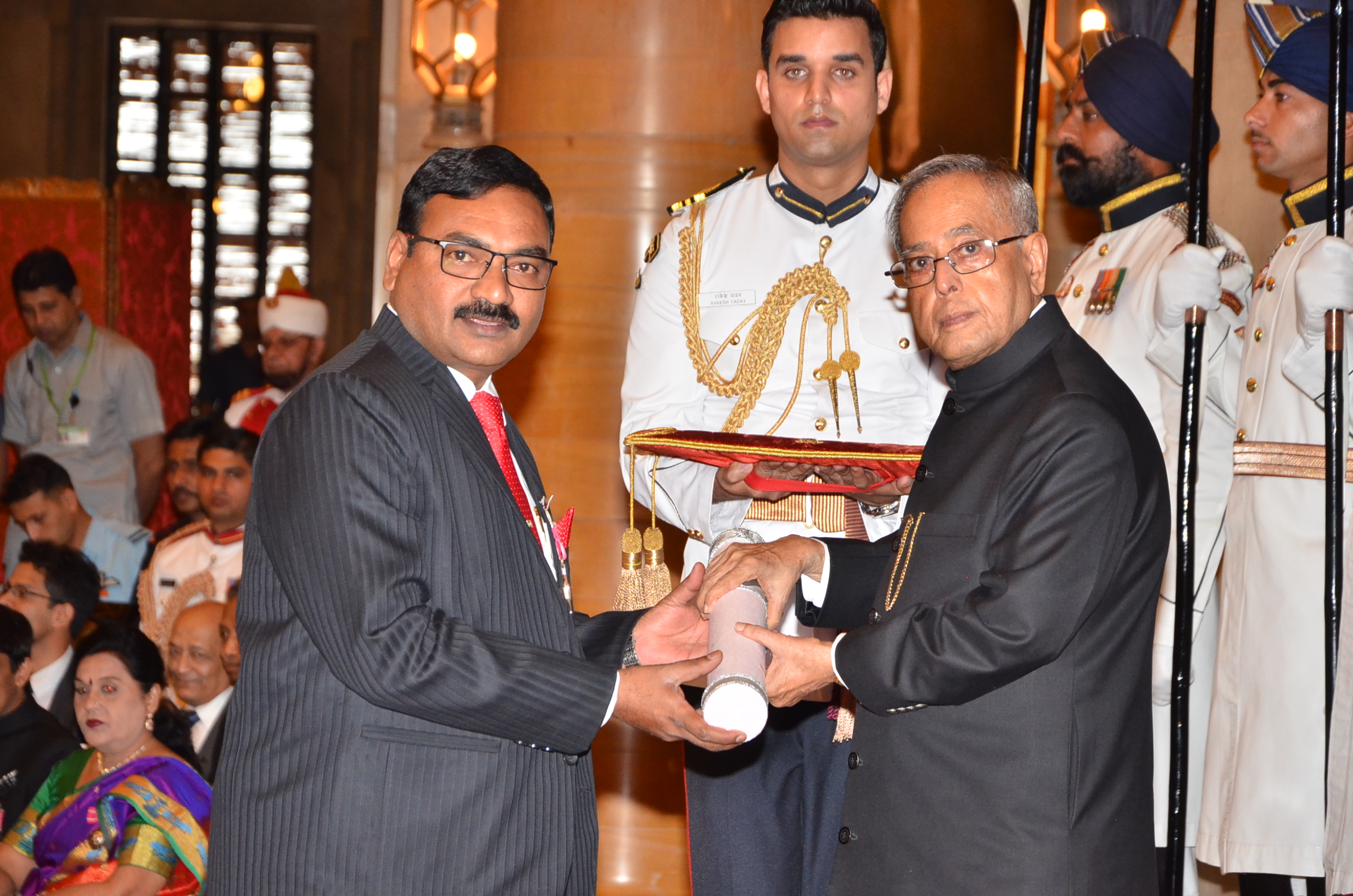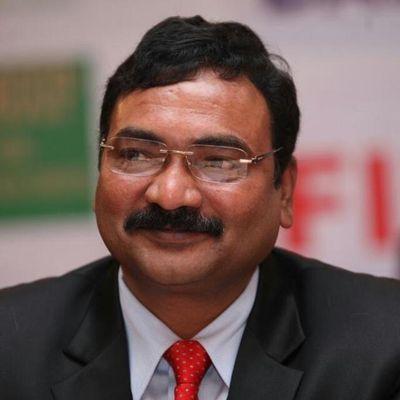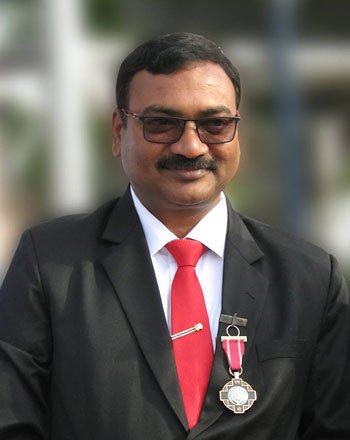“Dalit community needs business leadership,” Padma Shri Ravi Kumar Narra in exclusive chat with TCN

Padma Shri Ravi Kumar Narra is an entrepreneur and social activist. He is the National President of the Dalit Indian Chamber of Commerce and Industry (DICCI) and founder of the Shanti Chakra Foundation, which assists Dalit entrepreneurs in networking. In this exclusive interview with TwoCircles.net, Narra talks about his journey, his inspiration and offers advice for Dalit entrepreneurs on how to succeed in the field.
Preeti Nangal, TwoCircles.net
Your journey as an individual and as a professional is inspiring. Could you share the role played by your parents in encouraging you to be an entrepreneur?
My father worked as a mason and my mother worked as a housemaid. Sometimes she used to work as a labourer with my father. They are not educated and come from very poor backgrounds. We used to stay in a small house with a very big family in a basti near Secunderabad railway station. We didn’t even have a toilet and used a public one which was in a bad condition. We had to go out to fetch water and would have days assigned to each member to do this.
My parents were committed to our education. Whatever earnings they made, they invested in our education. My mother used to say only one thing that come what may you have to study well. She used to take me to the houses where she worked as a housemaid. I used to observe that those people had cars, big bungalows, nice clothes, and language skills. She would introduce me to the children there and would say: one day, you should become like them. I wanted that life for myself as much as my mother did. I saw these people were happy, proud and I wanted to be like that.
Also, sometimes my mother used to take me to a nearby hillock area. She used to collect cow dung there, turn them into cakes, and paste them on a nearby rock. By the next day, they would dry out, and she would collect them in a basket to sell in the market. This used to be additional revenue for us. From this experience, I learned that my mother is a good entrepreneur. With hard work and no investment - cow dung, rock, solar power were all freely available - she created a product to sell. My mother was intelligent to not depend on one source of income.
My father used to get paid weekly on Saturdays and my mother would send me along with him so he would not spend any money on drinking. There used to be arguments between the contractor and my father because he would refuse to give whole wages to my father citing that the government had not passed his bills. When my father would raise his voice, the contractor would threaten him to not come to work from the next day. This scene is printed on my mind.
A hardworking person is at the mercy of a contractor who is not discharging his responsibility and instead of making payments for the work done, he threatened him. The winner is always the contractor, not the labourer. I thought that one day I should also become a contractor but not treat my employees like how he treated my father.

Apart from your parents, who have been your role models?
My role model is Mr NT Rama Rao. He was the former chief minister of our state [Andhra Pradesh] and was also a film actor. I got associated with him during my college days when I was a student leader. He advised me on how we should come up in life, what status we should create in society, what should be our character and commitment towards the family. He advised me not to work for the government because otherwise, the system will corrupt you and that your talent won’t be recognized because promotion happens as per age and seniority, not by one’s talent. His inspirational words changed my life to some extent.
Moreover, after engaging in-depth with Dr Ambedkar’s philosophy and ideology, I feel informed and empowered to not worship the gods blindly or follow astrology. I am now able to question the system. I can talk to anybody with assertion.
My family, siblings, brothers-in-law and sister-in-law also supported me.
You mentioned the influence of political leaders on your career. What role has politics played in your journey as an entrepreneur?
Initially, I was earning only for sustainability. Subsequently, when my business went up, politics attracted me. I entered into politics with the help of Mr NT Rama Rao. I have worked closely with Mr Chandrababu Naidu. I also contested MLA elections twice but could not succeed. All said and done, the prevailing political system will not be doing any favour to the SC/ST community because the government's view is to only look at us as a vote bank. The schemes they introduce are introduced while keeping votes in mind. So, every scheme targets the lakhs of people but is not designed to empower individuals.
Suppose, the government gives free education to Dalit children. What responsibility would the father be able to discharge towards his children? The children would say: you could not even support our education. If the government gives me a house then what is my contribution to my family? When I enter that house, what self-respect will I have?
This political system is unable to provide solutions for the aspirations of many SC/ST community people. Many young generation people are coming up nowadays with great ideas but there is no support system. If they want to start a business or a startup, they want land but we do not have any land. So how do we start? Somebody has to finance them. If they go to the bank, they will be asked for collateral but collateral is not available to them. The Indian banking system is based on the collateral system. So these fundamental things need to be addressed by the government.
The government should be able to provide them with the land. The government should be able to give the guarantee on behalf of the entrepreneur to the bank. The young people don’t have the market, so the government should be able to create a market for them by sourcing material from the SC/ST entrepreneurs.
Now, being part of DICCI, I am doing more professional business and I can support many aspiring SC/ST youth across the country. We have created a huge infrastructure and network. We have succeeded in convincing the government that there must be an exclusive policy support system for the SC/ST communities.
You were born in a working-class Dalit family with no academic background. Yet you managed to get degrees in law, journalism, public policy, science. What encouraged you to pursue institutional education? Was it challenging to sustain yourself among peers from non-Dalit backgrounds who were more privileged than you?
I pursued my education while doing odd jobs simultaneously. I would attend college in the morning and work during the evening and when college used to be in the evening, I worked in the mornings. The main reason for the acquisition of the degrees is that I have a passion for education. My situation did not permit me to go to regular reputed colleges. So, whatever best options were available, I adopted those.
Till 10th class, I studied in a Telugu-medium school. So, when I entered college, I was not able to communicate properly with the fellow students since I was not proficient in English. Subsequently, I recognized the importance of the English language. Then I started focusing on learning the language.
You mentioned your struggle in communicating and networking because of language hindrance. Do you consider the English language an asset? Is the emphasis laid on the relevance of the English language resulting in the under-utilization of regional languages as an asset for networking and business?
Regional languages have their importance. One should have both. If we want to communicate with poor people, we should have access to the local language. If I go to Warangal and speak in English or Hindi, I won’t be able to communicate with them. So, there I have to speak Telugu.
I am the national president. If I would not have known Hindi and English, how could I have communicated with the DICCI people and the rest of the country? If I only know Telugu, I cannot become a national leader. First and foremost, language must make it convenient to communicate. How you are able to communicate and connect with people is the most important.

What are the future avenues for entrepreneurs from the Dalit community to explore and venture into?
Roti, kapda aur makan [food, clothes and houses]. There’s no saturation in this line of activity. These are also the three things that we lack in the Dalit community. Many jobs were traditionally done by Dalits. Since we left those works, others occupied them with technological advancements. For example, the footwear industry. Footwear is a very big opportunity for anybody and there’s no saturation. Also, sewage cleaning. For ages, only our people have been doing this business but now mechanization is taking place. The big players are coming into the field. This will be a business opportunity for many. Aerospace, fisheries, new technologies are coming up. At DICCI, our aim is to not only be job givers but to also develop business leadership, leaders who would recognize and create these opportunities.
What do you consider as a prerequisite to be an entrepreneur?
The prerequisite for a general entrepreneur is different from the prerequisite for a Dalit entrepreneur. One should be hardworking and must have the risk-taking capacity. Mostly, resistance to becoming an entrepreneur comes from the community itself. Many young people do business without the knowledge of their parents because parents will stop them. Parents say it is not our culture, that we are likely to fail. So, they would prefer a job even if it is a peon’s job.
To convert from one culture to another is very difficult. What we need is to showcase the success stories. One should have the moral support of the family members. At DICCI, we want to develop the family business culture. The entire family must be aware of business developments. My wife, for example, is very competent to look after my businesses even when I am not around. My sons only talk about business.
Unless you see some success stories, you will not get the confidence. You don't have the experience, land, connections, or investment. You are socially weak and there is no business network for you. All of these challenges have to be overcome. You should have that passion, commitment and confidence to be successful.
